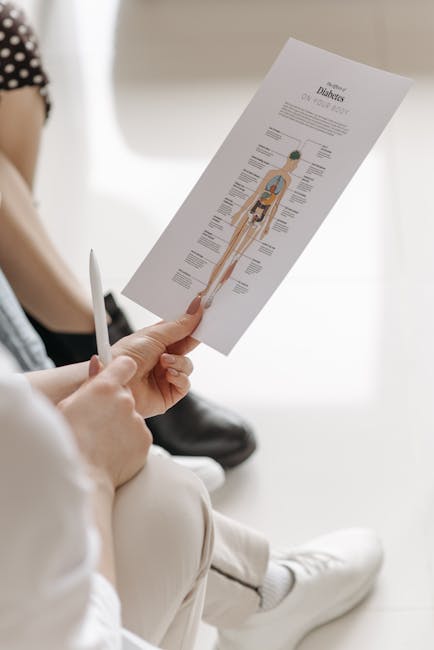Liver Health: Tips for Managing Medication Effects
Your liver is a vital organ that plays a crucial role in detoxifying your body, producing essential proteins, and aiding digestion. However, medications can have a significant impact on liver health. Understanding these effects and managing them effectively is key to maintaining optimal liver function. In this blog post, we will explore tips for managing medication effects on the liver, ensuring you stay healthy and informed.
Understanding the Liver’s Role in Medication Processing
The liver is responsible for metabolizing medications, which means it breaks them down so they can be used effectively by the body and excreted safely. This process is complex and can be influenced by various factors such as age, genetic makeup, and existing liver conditions. According to the American Liver Foundation, over 30 million Americans have some form of liver disease, highlighting the importance of liver health awareness.
Common Medications Affecting the Liver
Many medications can affect liver function, including over-the-counter drugs like acetaminophen, prescription medications such as statins, and herbal supplements. It’s essential to be aware of these potential effects and consult with healthcare professionals for guidance.
Tips for Managing Medication Effects on the Liver
While medications can be necessary for managing various health conditions, it’s crucial to take steps to protect your liver. Here are some actionable tips to help you manage medication effects:
1. Follow Prescribed Dosages
One of the simplest yet most effective ways to protect your liver is to adhere strictly to prescribed dosages. Overdosing on medications, especially painkillers like acetaminophen, can lead to severe liver damage. Always read labels carefully and consult your healthcare provider if you’re unsure about dosage instructions.
2. Regular Liver Function Tests
Regular liver function tests can help monitor the health of your liver and identify any potential issues early. These tests measure the levels of enzymes and proteins in your blood, providing insights into how well your liver is working. Discuss with your doctor the frequency of these tests based on your medication regimen.
3. Avoid Alcohol Consumption
Alcohol can increase the risk of liver damage when combined with certain medications. If you’re taking medications that affect the liver, it’s advisable to avoid alcohol altogether to prevent exacerbating any potential harm.
4. Maintain a Healthy Diet
A balanced diet rich in fruits, vegetables, whole grains, and lean proteins can support liver health. Foods like leafy greens, berries, and nuts are particularly beneficial due to their antioxidant properties. Staying hydrated is also crucial for liver function.
5. Be Cautious with Herbal Supplements
Herbal supplements are often perceived as safe, but they can interact with medications and affect liver health. St. John’s Wort, Kava, and Black Cohosh are examples of supplements that have been linked to liver damage. Always inform your doctor about any supplements you are taking.
Case Studies: Real-life Examples
Understanding real-life scenarios can provide valuable insights into managing medication effects on the liver. Here are two case studies that highlight the importance of vigilance:
Case Study 1: Acetaminophen Overdose
Jane, a 45-year-old teacher, suffered from chronic headaches and frequently took acetaminophen for relief. Unaware of the potential risks, she exceeded the recommended dosage, leading to acute liver failure. Her case underscores the importance of adhering to prescribed dosages and seeking medical advice.
Case Study 2: Statin Therapy
Mark, a 60-year-old retiree, was prescribed statins to manage his cholesterol levels. Regular liver function tests revealed elevated liver enzymes, prompting his doctor to adjust his medication. This case highlights the significance of regular liver monitoring for those on long-term medication.
Conclusion: Prioritize Your Liver Health
The liver is a resilient organ, but it requires your care and attention, especially when taking medications. By following prescribed dosages, undergoing regular liver function tests, and maintaining a healthy lifestyle, you can minimize the risks and protect your liver. Always consult with healthcare professionals for personalized advice, and stay informed about how medications can affect your liver health.
Remember, your liver health is in your hands. Make informed choices and prioritize your well-being.

Share this content:
About The Author
Discover more from J and J Fitness
Subscribe to get the latest posts sent to your email.





